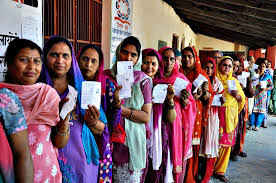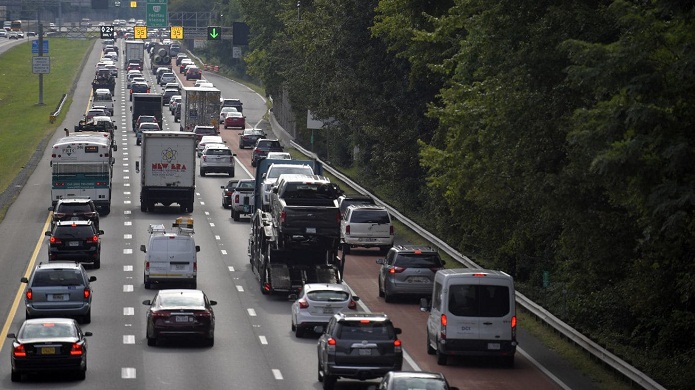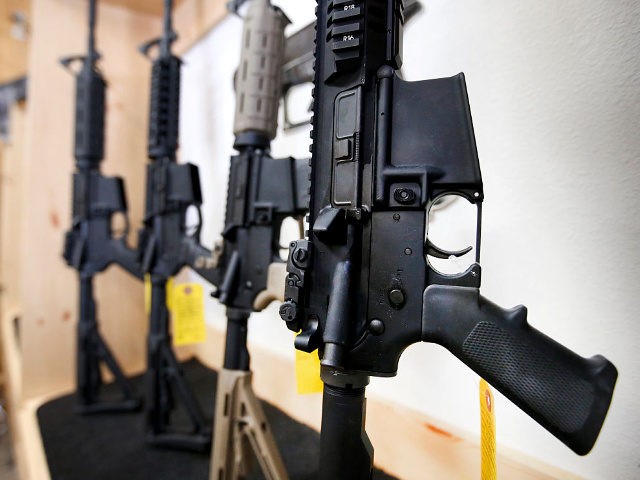Congress Mocking PM Modi over Masood Azhar vote:Complete story of Indian elections 2019:
Relations March 14, 2020 0 COMMENTS
India has entered full election mode: voting is due to begin on 11 April, with the final ballot cast more than five weeks later on 19 May. Every day, the BBC will be bringing you all the latest updates on the twists and turns of the world’s largest democracy.
Latest about Indian Election 2019 Campaign :
During an election, everything becomes about politics – even, apparently, votes at the UN security council.
The opposition Congress party was quick to paint the news that “China a close ally of Pakistan had one again blocked attempt by member states to declare Masood Azhar a global terrorist fourth time as a foreign policy failure by Mr Modi.
Opposition leader Rahul Gandhi’s mocking tweet refers to Mr Xi’s 2014 visit to India, when he sat on a traditional swing with Mr Modi in his home state of Gujarat, before joining the prime minister for a private dinner.
But since then, India’s relationship with China has not been the best.
Part of Mr Modi’s appeal to Indian voters is the fact that they see him as the man to lift the country into its “rightful place” on the global stage.
His supporters have pointed to his often effusive exchanges with world leaders, his “rock star” rallies in venue’s like Madison Square Gardens in the US and Wembley Stadium in the UK as examples of his mass international appeal. He is also extremely popular with Indian communities overseas.
Since 2014, every diplomatic victory India scores has been attributed to him. What’s more, his popularity has reportedly soared following weeks of tensions with Pakistan. Even in his rallies, he has often referred to India’s military action as “Modi teaching Pakistan a lesson”.
If China had not blocked the proposal against Masood Azhar again, this would have been undoubtedly painted as another instance of his diplomatic prowess. Therefore it is unsurprising that the Congress has latched on to this opportunity to try to poke a hole in this image.
Will it stick though? That is the question.
What is happening?
Sources have told the Indian Express that a detail report containing the numbers of the jobs provided by the government will not be unveiled for coming two months, or put another way, until most of the country has voted.
The delay to the Micro Units Development & Refinance Agency (Mudra) scheme report is the third such report to be delayed ahead of the election.
It is unclear what the findings of the report are, and the Express newspaper says the government has been “tight-lipped” about it.
What’s its Importance in this scenario ?
Well, according to a leaked report in the early months of this year “ Country’s unemployment ratio is the highest point it has been reached since the early 1970s.
Unsurprisingly, that means jobs are top of many voters wish-lists when it comes to electing their next government,
And, as job creation was one of current Prime Minister Narendra Modi’s main promises back in 2013, any bad news on the employment front is likely to be bad news for the ruling BJP.
What happened ?
West Bengal Chief Minister Mamata Banerjee has released the All India Trinamool Congress’ (TMC) list of candidates – and, 41%, or 17 out of 41, are women. It’s a starry list – it has two top regional actresses, Mimi Chakraborty and Nusrat Jahan. Moon Moon Sen, a former actress who won in the 2014 election, will also be contesting again.
“I am so happy. This is a proud moment for us,” Ms Banerjee said, challenging other parties to do the same.
Why this matter is Important ?
Female voter turnout has been steadily going up over the last few years, but the fact of the matter is, while seats in India’s village councils have been reserved for women since the early 1990s, parliament is still dominated by men.
As women become a more powerful voting block, parties are realising they need to actively target them.
Previously, politicians have wooed women with costly schemes and concessions, but it is becoming more and more clear that a party doesn’t just need to woo women voters, it needs to represent them.
And, following the realisation, no one is willing to be left behind: Congress leader Rahul Gandhi offered up his own promises on Wednesday, saying the opposition party would bring in the Women’s Reservation Bill – which would mean 33% of seats in parliament would be reserved for women – this year if it came to power, some 20 years after it was first proposed.
The Prime Minister has been sending out a barrage of tweets since Wednesday morning, tagging celebrities, media personalities and even rival politicians, telling them to use their influence to get more people to vote.
He tweeted roughly every two minutes, each time tagging a different set of people – each with a personalised message. These ranged from “a high turnout augurs well for our democratic fabric” to “the core of badminton is the court and the core of democracy is the vote”.
However, our personal favourite is the one in which he channelled the iconic tagline from the 1990s’ Bollywood blockbuster Kabhi Kushi Kabhie Gham: “It’s all about loving your family.”
Tagging the two male leads of the film, Shah Rukh Khan and Amitabh Bachchan as well as its director Karan Johar, the tweet finished with “it’s all about loving your… democracy”.
Priyanka Gandhi Social tweets :
Priyanka Gandhi has finally debuted on Twitter, sending two tweets just hours after she made her first speech as a fully-fledged politician in Mr Modi’s home state of Gujarat.
“In the simple dignity of Sabarmati, the truth lives on,” her first tweet read, followed moments later by another – a photo, and a Mahatma Gandhi quote.
The calm nature of the Congress politician’s tweet was in contrast to her fierier tone earlier in the day.
“Your vote is a weapon, your awakening is a weapon, your awareness is a weapon, so use it wisely because you are going to choose your future,” she told a cheering crowd in Gujarat, in a speech which left many comparing her to her grandmother, the former prime minister.
Why does this matter?
A social media presence is key for any modern politician, as PM Modi’s 46.3 million followers will tell you. Used well, it can garner you millions of votes. Used badly, it can destroy a career before it has even got started.
How Ms Gandhi will fare remains to be seen. However, it is likely her brother Rahul – the Congress leader who has found himself trending for both positive and negative reasons over the last few hours – will be on hand to give her some advice.
Hardik Patel and Rahul, What’s nexus ?
Hardik Patel, the firebrand social activist who rose to fame challenging Prime Minister Modi in his home state of Gujarat, made his first public appearance with the opposition Congress party.
Mr Patel was on stage as Congress leaders like Rahul Gandhi and Priyanka Gandhi addressed a large rally in Gujarat to officially flag off the party’s election campaign.
He announced he was joining Rahul Gandhi’s party on Sunday.
The 25-year-old commerce graduate, who was not old enough to stand for election under India’s rules until this year, first rose to political fame as the face of massive caste protests which rocked Mr Modi’s state in 2015.
Patel is known for leading a movement demanding that the Patels – or the Patidar caste – be given better access to jobs and education through the quota system.
Why does this matter?
Mr Patel’s decision to join Congress, a dynastic party hoping to reinvent itself in this year’s election, is significant. The opposition hopes that he will be pivotal in swinging the vote in Gujarat, and for good reason.
His speeches and fiery oratory have attracted millions of supporters – many of whom have traditionally voted for Mr Modi’s ruling Hindu nationalist Bharatiya Janata Party (BJP), which has ruled Gujarat for more than two decades.
“He brings mass appeal for the Congress, which is something the party has desperately sought in the past 20 years,” said Ankur Jain, BBC Gujarati’s editor. “They’ve never had a leader as popular as him in Gujarat.”
Mr Patel has been seen as a strong threat to the BJP ever since 2015, when caste protests took off in Gujarat. “He became a prominent voice of dissent for shaking up the status quo in Gujarat,” our editor explained.
So, should the BJP be worried? Possibly. But remember they still managed to win the state election in 2017.
“It was a close call though as the party did lose seats – and Mr Patel is one of the main reasons behind that,” notes Ankur Jain.
Concerns over the election schedule, which was finally unveiled on Sunday revealing a seven stage process which will begin on 11 April and end on 19 May.
Why does the schedule matter?
Well, while the schedule’s length is nothing unusual – India’s first election in 1951-52 took a total of three months to complete – a number of people are pointing to the unusual way some states have been split up.
For example, West Bengal – where the majority of MPs are from the Trinamool Congress (TMC) – will vote over seven separate dates.
Could this have an impact on the overall vote? Possibly, according to elections expert Sanjay Kumar.
“Multiple phases in one state is not ideal,” Mr Kumar, director of the Centre for the Study of Developing Societies, wrote on Twitter. “Campaign in neighborhood constituency within same state would impact voting decision.”
But could that give one party an unfair advantage? Some on social media have certainly suggested it may – particularly when it comes to the ruling BJP.
Others dismissed the allegation as rubbish. For example, senior Economic Times editor Shantanu N Sharma suggested the four-phase vote in the small state of Orissa could be down to the need to move federal forces needed to patrol the polling stations from one region to the other.
Local police are seen to be partisan, so federal forces have to deployed to secure polling stations. The forces have to be freed from their duties and moved all around the country.
In fact, he went as far as to suggest the set-up is actually “disadvantageous to the ruling party”.
And there are other things to consider when it comes to the schedule and how it will affect the outcome: Mr Kumar points out the choice of days – over weekends, holidays and even Mondays – could bring voter turnout down in some areas.
The Electoral Commission, meanwhile, has not given precise details of how it put the schedule together.
RELATED ARTICLES
Recent Posts
- Big arrangements are made by a nervous Harris campaign to secure a close victory.
- Assault on peace: Hammas deadliest attack on israle on Oct 07 , instigated Midle East Crisis:
- Israel marked “solemn” anniversary commemorating 7/10 deadly attacks:
- Trump impeachment: Trump lashed out over his impending impeachment in an irate letter to Nancy Pelosi, accusing her of declaring “open war on American democracy”.
- hotness breaks its records in Australia :


